You mean they don’t do it just to confuse us?
by javabeans
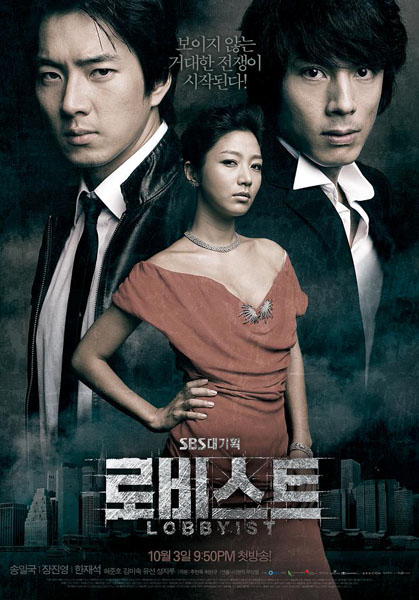
“The Surprising Reason Behind Drama Title Changes”
The upcoming, vastly expensive SBS Wednesday-Thursday drama Lobbyist, starring Song Il Kook [Jumong] and Jang Jin Young, has confused many viewers — because until recently, it was widely referred to as Angel.
After deliberating over the two titles, deciding between the potentially overly feminine “Angel” and the overly masculine “Lobbyist,” the production company eventually chose to go with “Lobbyist.” However, not knowing this, many viewers came to use both titles.
Thus working titles are employed before dramas are introduced to the viewing public. Although many times the working titles do become the broadcast titles, there are also many instances when that is not the case. Some strange circumstances may intervene to require a first title to be discarded.
(Random) SONG OF THE DAY
Humming Urban Stereo – “샐러드 기념일” (Salad days/memories) [ zShare download ]
Audio clip: Adobe Flash Player (version 9 or above) is required to play this audio clip. Download the latest version here. You also need to have JavaScript enabled in your browser.
The new KBS2 morning drama Kind Woman Baek Il Hong [착한여자 백일홍], which begins airing October 1, used the working title “Extravagant Woman Baek Il Hong” [헤픈여자 백일홍]. However, the phrase “extravagant woman” could too easily be misunderstood — the title was used meaning that she was free in extending her affections, or in other words, “too kind.” It’s a fresh title for a drama, but because it could face resistance from women viewers, it was unfortunately changed.
The SBS drama starring Kim Dong Wan and Han Eun Jung which aired this past March, The Person I Love [사랑하는 사람아], had legal reasons for giving up its working title, which had been “I Don’t Love You.” That title had already been trademarked for something else and couldn’t be used, so in the end viewers came to know the drama under the name “The Person I Love.”
(Left: The Person I Love; right: Hello! Miss)


There are also dramas whose initial titles are completely different from the ones they eventually take on. The drama Hello! Miss [헬로, 애기씨], broadcast in March, is one of those. This series used the working title “Pride,” in reference to the sense of honor of an ancient ancestral household. However, because many people could associate that with the Pride fighting championships, the title was inevitably changed.
MBC’s But I Like You Anyway [그래도 좋아] is a case where changing the name caused further complications, because it was too similar to the SBS drama starting on October 1, I Hate You But I Like You [미워도 좋아, also can be translated “I hate you but that’s okay”]. The initial plan was to televise the series as “Fatal Love,” but the title change to “But I Like You Anyway” caused a similarity not only in content but in title with “I Hate You But I Like You,” which coincidentally premieres on the same day.
And so, there are many various unseen circumstances causing a drama to change its title, but all in all, hidden within are the beads of sweat from the efforts of coming up with a name that’s even better.
Source: http://www.mydaily.co.kr/news/read.html?newsid=200709250920401112
제목 바꾼 드라마들, 그 기막힌 속사정
2007-09-26 13:48:19[마 이데일리 = 임이랑 기자] 최근 송일국과 장진영의 출연, 그리고 막대한 제작비로 화제가 됐던 SBS 새 수목드라마 ‘로비스트(극본 최완규, 연출 이현직)’의 제목이 헷갈리는 시청자가 많을 것이다. 이 드라마는 최근까지도 ‘엔젤’이라는 제목으로 불린 적이 많기 때문이다.
제작진은 ‘엔젤’과 ‘로비스트’라는 제목 두개를 놓고 너무나 여성적인 ‘엔젤’을 선택할 것인가, 너무나도 강한 ‘로비스트’를 선택할 것인가를 고심하다 결국 ‘로비스트’를 집어든 것으로 알려져 있다. 그러나 마지막까지 이를 알지 못한 시청자들이 많아 두 제목은 혼용돼 왔다.
이렇듯 드라마는 시청자들을 만나기 전까지 ‘가제’라는 이름표를 달고 있다. 가제가 그대로 굳어져 방송되는 경우도 많지만, 그렇지 않은 경우도 대부분이다. 처음 붙여놓은 가제를 버릴 수 밖에 없는 이유에는 여러가지 기구한 사연이 얽혀져 있다.
10월 1일부터 방송될 KBS 2TV 새 아침드라마 ‘착한여자 백일홍(극본 고봉황, 연출 진형욱)’의 가제는 ‘헤픈여자 백일홍’ 이었다. ‘헤픈여자’라는 단어는 자칫 오해의 소지가 있지만, 정이 헤픈여자, 한마디로 너무 착한 여자라는 의미를 담고 있었다. 드라마 제목으로는 신선하지만 너무나 파격적인 면이 있었던 이 드라마 제목은 여성단체의 반발이나 거부감을 일으킬 수 있다는 이유에서 아쉽게 변경됐다.
지난 3월 종영한 김동완 한은정 주연의 SBS 드라마 ‘사랑하는 사람아(극본 최윤정, 연출 정세호 윤류해)’는 법적인 이유에서 가제를 포기했다. ‘사랑하는 사람아’의 가제는 당초 ‘사랑하지 않아’였으나 이 제목은 타사에서 상표등록을 미리 해 놓았기 때문에 사용할 수 없었고, 결국 ‘사랑하는 사람아’라는 이름으로 시청자를 만났다.
처음 점찍어 놓은 제목과는 전혀 다른 이름으로 나타난 드라마도 있다. 지난 3월 종영한 ‘헬로, 애기씨(극본 박영숙, 연출 이민홍)’가 그랬다. 이 드라마는 종갖집의 자존심을 뜻하는 ‘프라이드’라는 가제로 제작이 진행돼 왔다. 그러나 격투기 대회인 프라이드를 연상하는 사람이 많아 부득이하게 변경됐다.
MBC ‘그래도 좋아(극본 김순옥, 연출 김우선)’는 가제를 변경해 더욱 곤란해진 경우다. 10월 1일 함께 시작하는 SBS ‘미워도 좋아’와 너무 비슷한 제목이 됐기 때문이다. ‘그래도 좋아’는 ‘치명적 사랑’이라는 제목으로 브라운관에 나설 예정이었지만 제목이 바뀌는 바람에 공교롭게도 같은날 시작하는 ‘미워도 좋아’와 내용 뿐 아니라 제목으로도 신경전을 벌이게 됐다.
이렇게 가제를 바꾼 드라마들에는 다양한 속사정이 있지만 하나같이 조금이라도 더 어울리는 제목을 붙여주기 위한 땀방울이 숨어져 있다.
Tags: Hello! Miss, Lobbyist
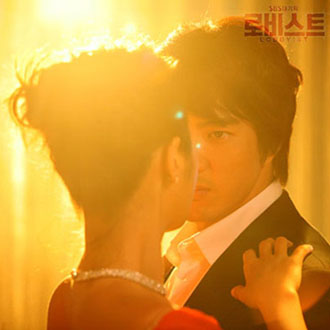



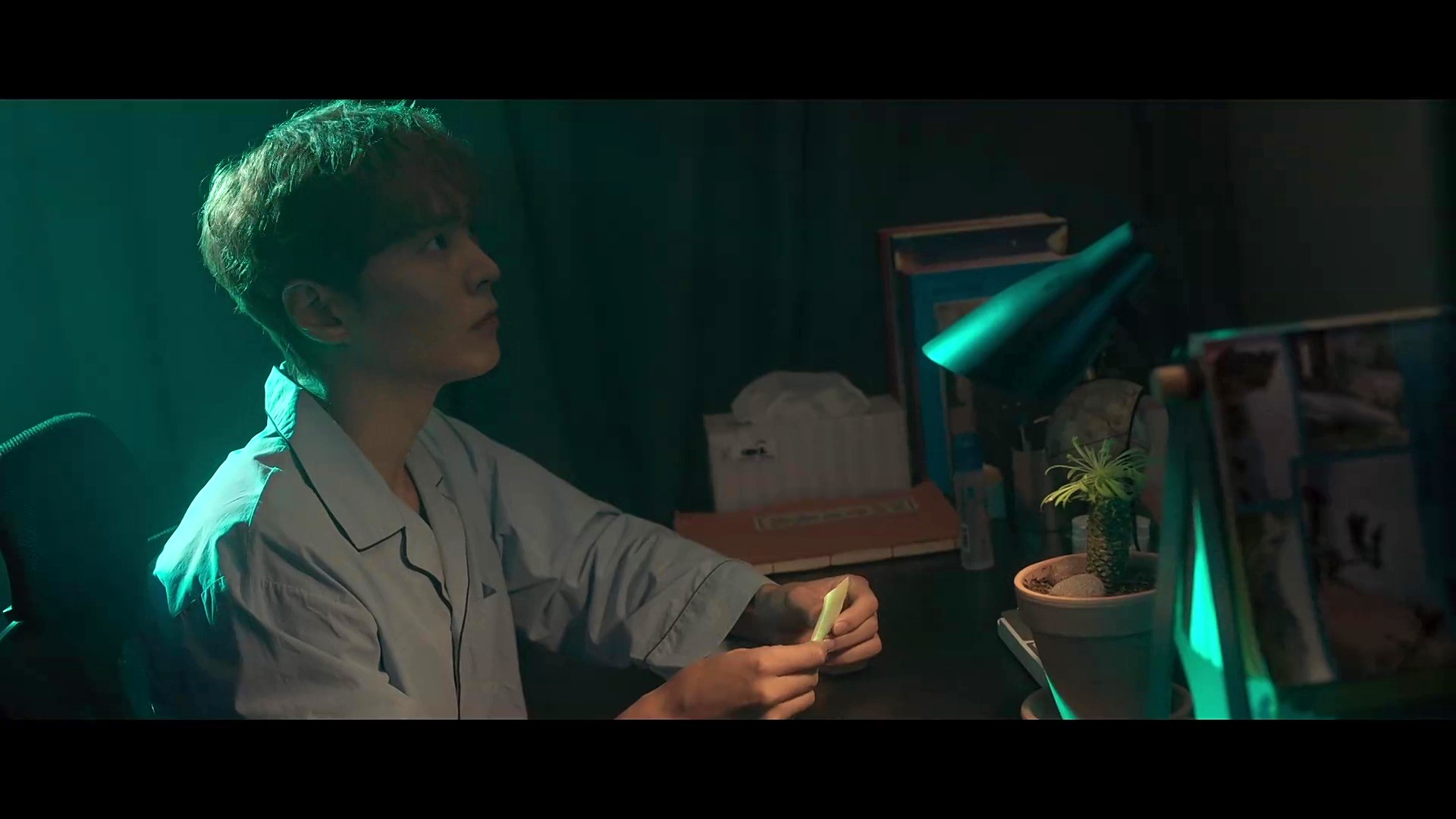
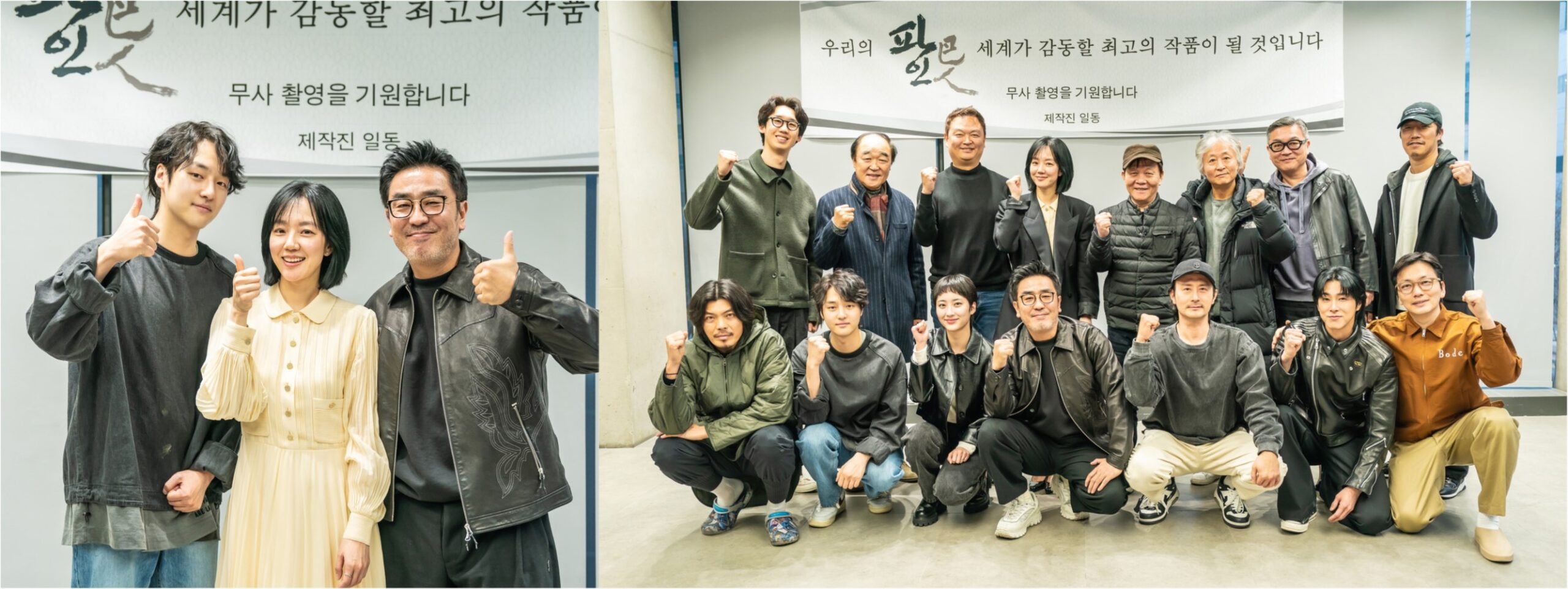

![[Beanie Recs] Dramas about fangirling](http://d263ao8qih4miy.cloudfront.net/wp-content/uploads/2022/05/BeanieRecs.jpg)



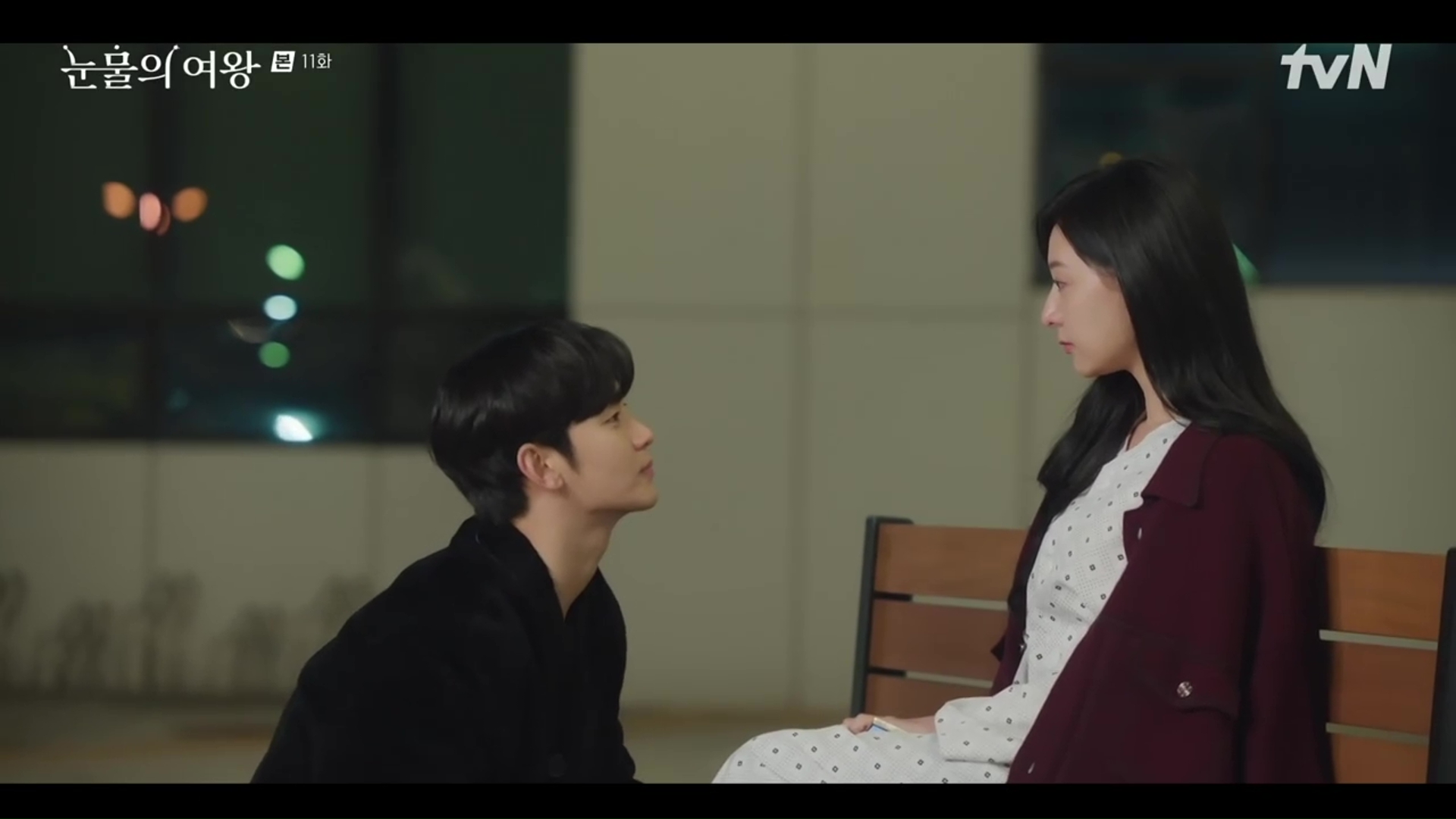
Required fields are marked *
Your email address will not be published. Required fields are marked *
1 gailt
September 26, 2007 at 7:15 PM
i had wondered at the "pride" to "hello! miss" title change.
and a lee da hae picture! in a hanbok! (both warranted the exclamation points). thanks.
Required fields are marked *
2 Eve
September 26, 2007 at 8:08 PM
I think it's weird that they put the korean title of Lobbyist as '로비스트' I mean phonetically shouldn't it be '로비이스트'? lol maybe that's just how I pronounce it...
Required fields are marked *
3 Gramps
September 27, 2007 at 1:55 AM
#2 Eve "phonetically shouldn’t it be ‘로비이스트’?"
This touches on the split personality of Hangul. Is it 1) a writing system tailor-made specifically for Korean or 2) a potentially universal phonetic notation that happens to be used only for Korean? The extraordinary achievement of King Sejong and his band of scholars was that although the brief was to produce 1) they came up with something pretty much capable of 2) as well.
But there's a difference between the sounds Hangul can potentially represent and the sounds that are part of the repertoire of current Korean. So there are sounds and sound sequences occurring in languages other than Korean that can indeed be noted down in Hangul, but which don't then come out "correctly" if the resulting written word is pronounced as if it were Korean. There are also sequences which can't actually be written in Hangul at all, at least not using the established rules. One example is so common in "Konglish" words that most people don't pay it any thought. It's visible here twice, in the "schwa" or ㅡ vowel inserted after both ㅅ and ㄸ. A phonetic version of the English word would require "st". But that sound combination is not available in Korean, and the (current) rules for writing Hangul don't allow those two consonants to follow each other at the end of a syllable, so "ㅅ ㄸ" can neither be written or said. To make something at least vaguely like the English word both writable and sayable, the least "assertive" vowel available in Korean has to be inserted, producing "s -uh -t -uh" at the end. The result is pronouncable in Korean, but at the price of what sounds to English-speaking ears like a considerable phonetic deviation from the original word.
The issue with the "y-i" in "lobbyist" is slightly different. Korean does allow some vowels to come up against one another (ignoring the presence of the zero initial consonant), so 비이 can be both written and said, echoing the English sound sequence fairly closely. The trouble is that Korean as spoken tends to run double occurrences of the same vowel into one, so that even if the word were written "로비이..." in an attempt to reproduce the English sounds, most people would say it as if it were written 로비스트. So it makes sense to write it that way anyway. If I consult HWP's pop-up dictionary, it indeed confirms that as the accepted spelling:
로비스트
【명사】 의회의 로비를 무대로 특정 압력 단체의 이익을 위하여 청원·진정을 중개하는 원외(院外) 단체의 활동자.
Required fields are marked *
4 Erica
September 27, 2007 at 2:31 AM
Does anyone know why it was referred to as "Angel" for a time? Who's the 'angel'? Does someone die and become an angel? Is someone a figurative 'guardian angel'? I've never understood that. Considering all the action it appears will be in this series, I think they picked the right name.
Required fields are marked *
5
December 24, 2007 at 9:56 AM
can you tell me why i think i saw 2series with almost the same title... SJS sorry i love you and Kim Rae Won's ... i'm sorry i love you ... (?) or did i just confuse myself in that too?
Required fields are marked *